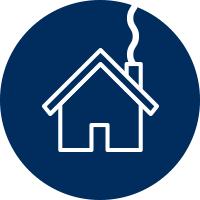CL's Theoretical Background (History)
Module 0
Overview - In this module participants begin with a benchmark quiz prior to investigating the theoretical underpinnings of CL. Participants will also find instructions on signing up and finding their assigned CL group. This module requires that the participants read to summarize text and participate in an online discussion forum as a jigsaw activity.
Activities in this Module:
-
Pre-Test - Participants should not continue until they have taken the short ten question quiz. Click on the following link to go to the Pre-Test or use your smartphone to scan the adjacent barcode to take the test. Please note that Module 5 includes a final Post-Test.
-
Sign up (if not done yet) or register, using the button found at the top of this page. Participants will use their PSJA email address along with any preferred password. Please note that the administration of this web-sight does not include managing passwords. Login will be used to identify the participants in the discussion forum and guide them through the implementation of the modules.
-
Finding Your Group - The first major step in the CL process is to identify participants and group them based on specific criteria. And, in this case, the groups have been created for diversity and are referenced in Table 0.01. Please scroll through the table or search for your name. Once you have found it, note that you have been assigned a number, which identifies your group, and one of the first four letters of the alphabet; the letter serves to identify a pre-defined role (more information provided later in Module 2). For this Module the group member roles are found in Table 0.02.
-
CL's History and Jigsaw Activity - Although this History Module is not an element of the Cooperative Learning process, it serves to point out theoretical background or what Academia terms research driven pedagogy. In this activity your group will read four pages from the first chapter of a Robyn M. Gillies and Adrian F. Ashman book titled Co-operative Learning: The social and intellectual outcomes of learning in groups. Click on the following link to download the reading assignment.Your assigned Resource Manager (#b) may print the four page handout and assign page one to #a member, the second page to #b, third page to #c, ad fourth page to #d. Each member will summarize their assignment by creating a post in the Discussion Forum. Note that the discussion forum requires every team member include a brief description of themselves to serve as an introduction. Details in this introduction should include personal information such as hobbies or fun facts that serve to foster camaraderie. Participants should also post comments to at least one of their fellow team members posts. This activity will be considered complete when all members have posted. Participants should help each other maneuver through the discussion forum.
Summary - Cooperative Learning's evolution spans decades of compiled knowledge from renowned psychologists, philosophers, and academicians. In this introductory module the participants will investigate the theories that have influenced what we have come to understand as CL. This module uses the work of David W. Johnson a Professor of Educational Psychology and Roger T. Johnson, a Professor of Curriculum and Instruction, both of who are Co-Directors of the Cooperative Learning Center at the University of Minnesota. Along with her two previously mentioned brothers, Edythe Johnson Holubec, English Instructor at the University of Texas Austin, created the seminal work titled Cooperation in the Classroom and which serves as the foundation for this training.

Click on the following link to go to Module 1

